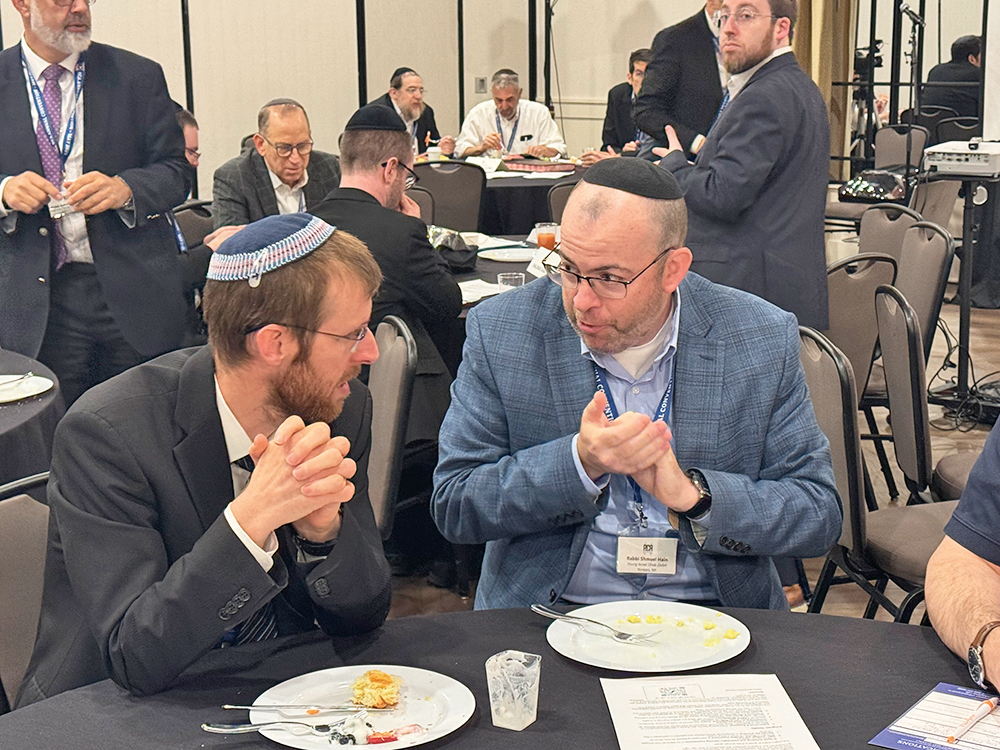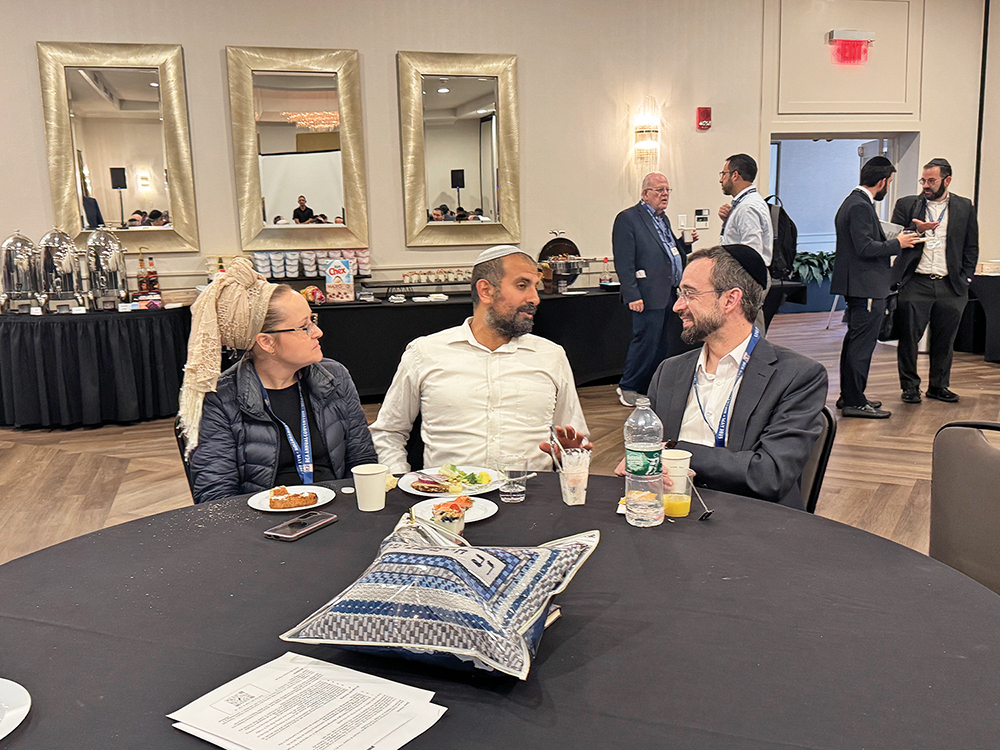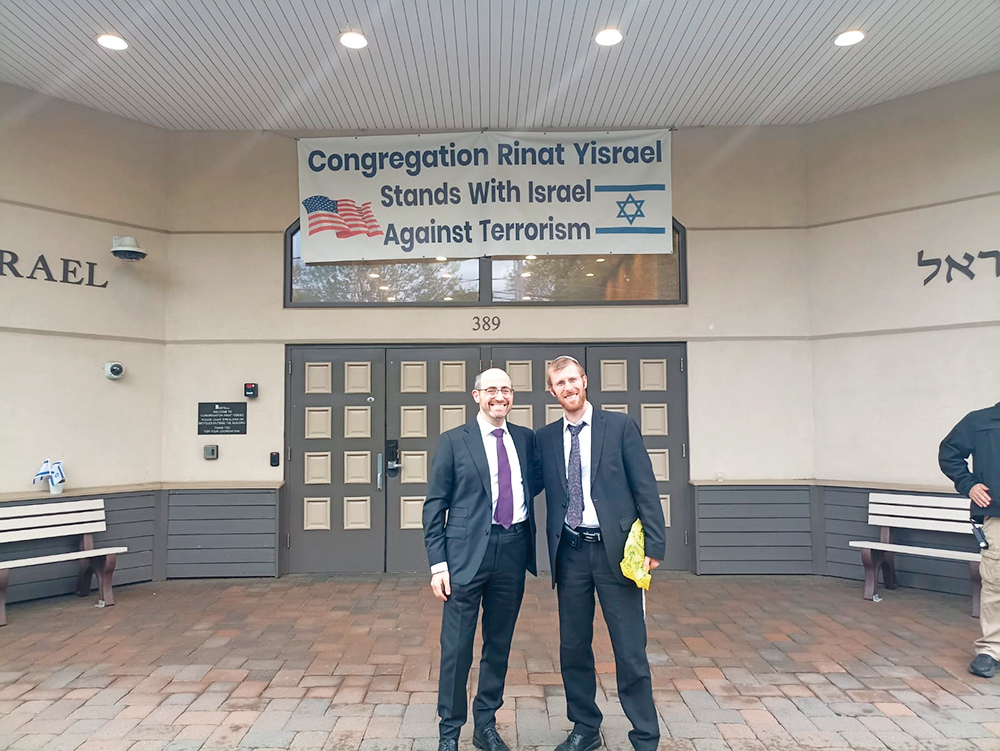
A new rabbinic exchange program by the Rabbinical Council of America (RCA) and the Barkai Center for Practical Rabbinics and Community Development headquartered in Modi’in brought Israeli and American Orthodox rabbis together last month, creating meaningful community-to-community connections across the Atlantic.
Stories From the Front Lines
Several months after being matched through the RCA/Barkai program, Rabbi Moshe Bloom finally met his American counterpart in person. The military rabbi of IDF Battalion 7056 and community rabbi of Congregation Netzach Shlomo in Petach Tikvah spent Shabbat at Congregation Rinat Yisrael in Teaneck, where Rabbi Chaim Strauchler welcomed him. The visit gave Rinat’s congregants a raw look at what it means to be a rabbi in Israel during wartime.
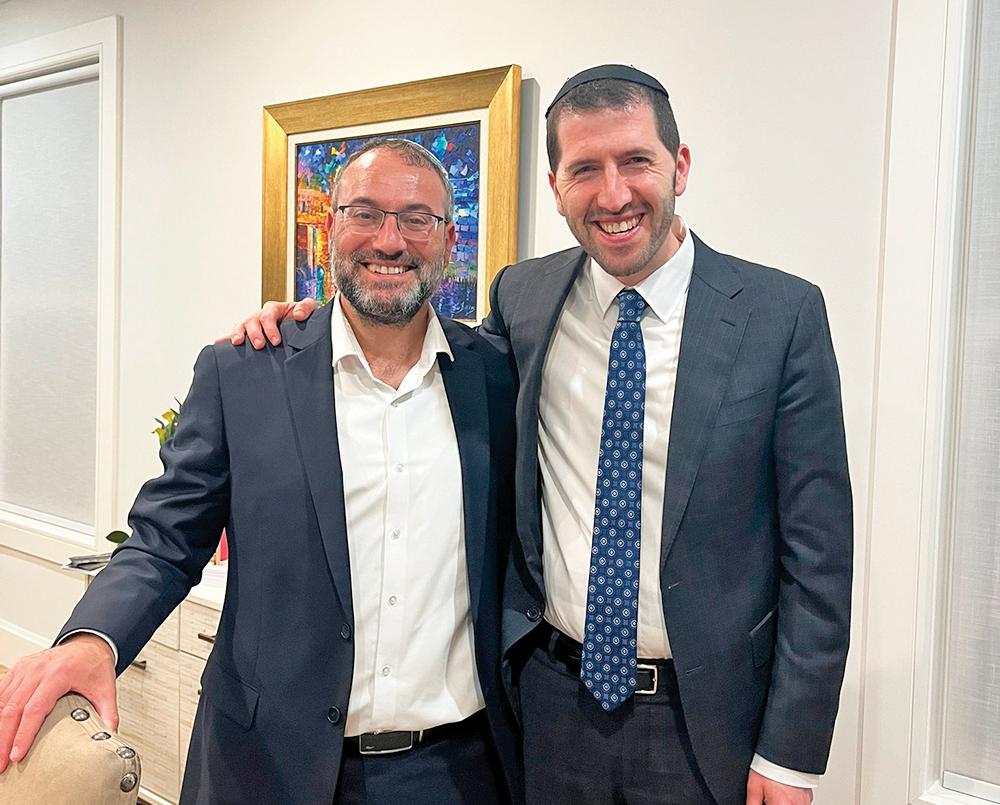
Rabbi Bloom shared stories from his unusual double life as both military and community rabbi. He told them about one of his soldiers, Roee Barel, who survived the Nova music festival attack and showed up to his battalion at Israel’s northern border just days later — despite being eligible for exemption. When the battalion needed Torah readings and there wasn’t a Torah scroll to be found, Rabbi Bloom drove to Nahariya to borrow one. The battalion was split into five companies, so the Torah had to be read five times. Before the final reading, Barel, a secular soldier, asked Rabbi Bloom to teach him the Birkat Hagomel blessing, the prayer said when one survives a threatening situation.
Six Rabbinic Pairs Connect Communities
Besides the Bloom-Strauchler pairing, the program matched five other rabbinic pairs across diverse communities:
- Rabbi Josh Hess of Young Israel of East Brunswick hosted Rabbi Yossi Weissberg of Congregation Zechor Le’Avraham in Jerusalem’s Givat Mordechai neighborhood.
- Rabbi Etan Mintz of B’nai Israel Congregation in Baltimore hosted Rabbi Shmuel Avraham of Kehillat Sephardi Dati-Leumi in Petach Tikvah.
- Rabbi Wes Kalmar of Anshei Sfard Kehillat Torah in Milwaukee hosted Rabbi Rashi Tvito of Kfar HaOranim.
- Rabbi Michael Davies of Congregation Sons of Israel in Cherry Hill, New Jersey hosted Rabbi Yuval Mittelman of Yeshurun Central Synagogue in Gedera.
- Rabbi Zev Goldberg of Bais Midrash of Bergenfield welcomed Rabbi Yossi and Rabbanit Revital Chazan from Beit Yatir.
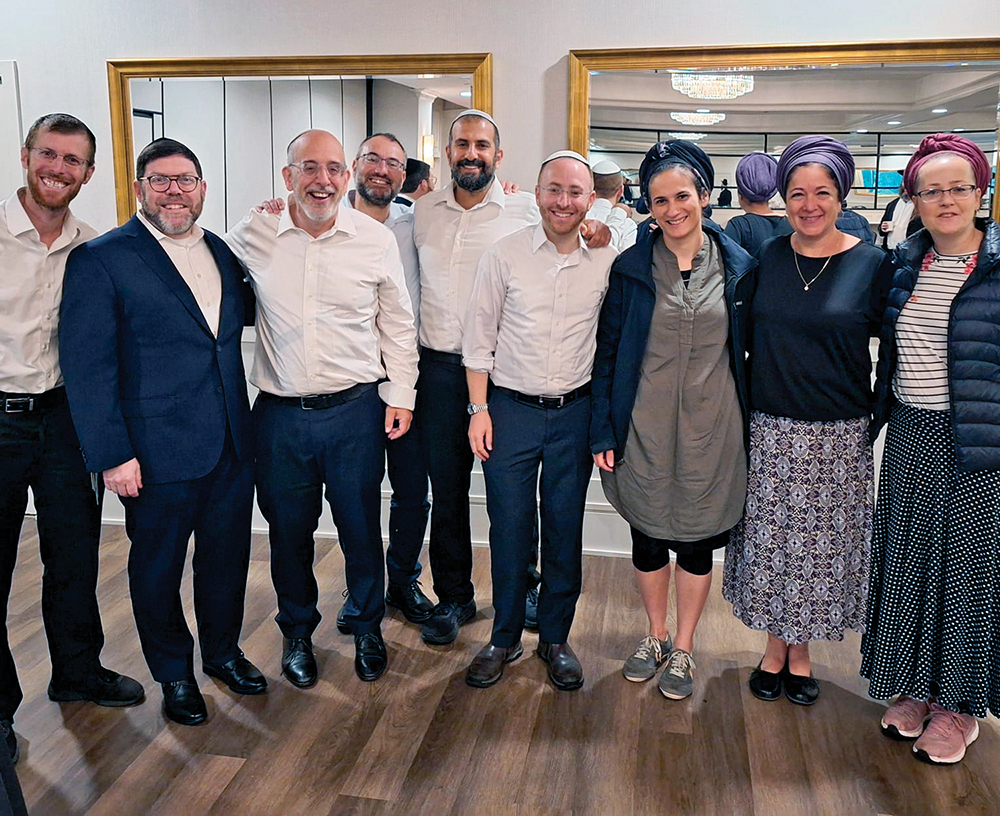
Rabbi Chazan, who is a paratrooper commander in the reserves and serves the 150-family settlement in the southern Hebron hills, talked about what it’s like leading a community during wartime. He described how he tried to connect with all the kids on Lag B’Omer by going from bonfire to bonfire. At one stop, he borrowed a kid’s flute and played a few songs. He also thanked the Bergenfield community for the flowers and cakes they sent to wives of reservist soldiers who’ve been managing their households alone, sometimes for months.
RCA Convention Adds Professional Development
Between the two Shabbatot, the Israeli rabbis attended the RCA’s annual convention, observing how a unified Orthodox rabbinate operates nationwide to strengthen Jewish life in North America. The presence of Israeli rabbis enriched the convention, as American colleagues engaged them in extensive conversations about their communities and rabbinical approaches.
“Partnerships between Israeli and North American rabbis can bring so many benefits. But it takes both the initiative and the network of both Barkai and the RCA to make it a reality,” said Rabbi Menachem Penner, RCA’s executive vice president and a program organizer.
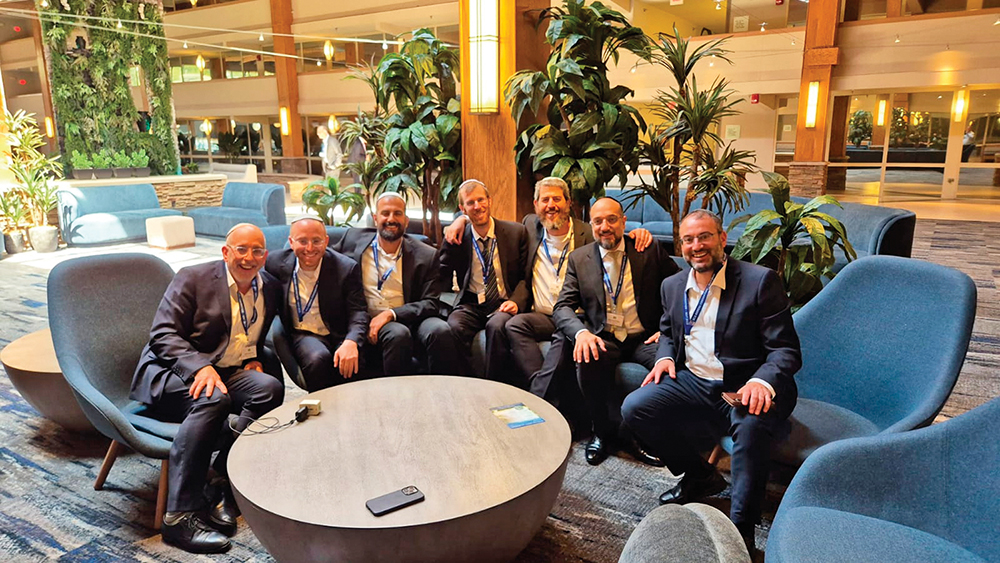
Two-Pronged Mission: Unity And Best Practices
Rabbi Strauchler explained the program’s dual objectives to his congregation. First, it aims to deepen ties and unity between Israel and the Diaspora through specific rabbinic and community connections rather than general missions or trips. The goal is to connect entire communities, not just the rabbis, with hopes for visits in both directions as well as joint projects between the communities. Second, it facilitates sharing best practices in rabbinate, community building and leadership between different Jewish contexts.
Rabbi David Fine, Barkai’s co-founder and project initiator, explained his organization’s mission: “Barkai was founded to bring a more communal aspect to Israel’s religious community. In Israel, synagogues are mostly seen as places for prayer and ritual, not community — unlike outside Israel. This resulted from early Israeli leaders like David Ben-Gurion believing the new, strong Israel didn’t need the community associated with the “weak” exilic Jew. This has caused disconnection and loneliness among many Israelis. Barkai was founded to reverse this trend.”
American rabbis hoped to gain insights from Israeli colleagues about crisis leadership while experiencing Israel through the lens of average Israelis in places like Petach Tikvah, Gedera and Beit Yatir — away from Anglo-heavy areas like Beit Shemesh, Ra’anana, and Modi’in.
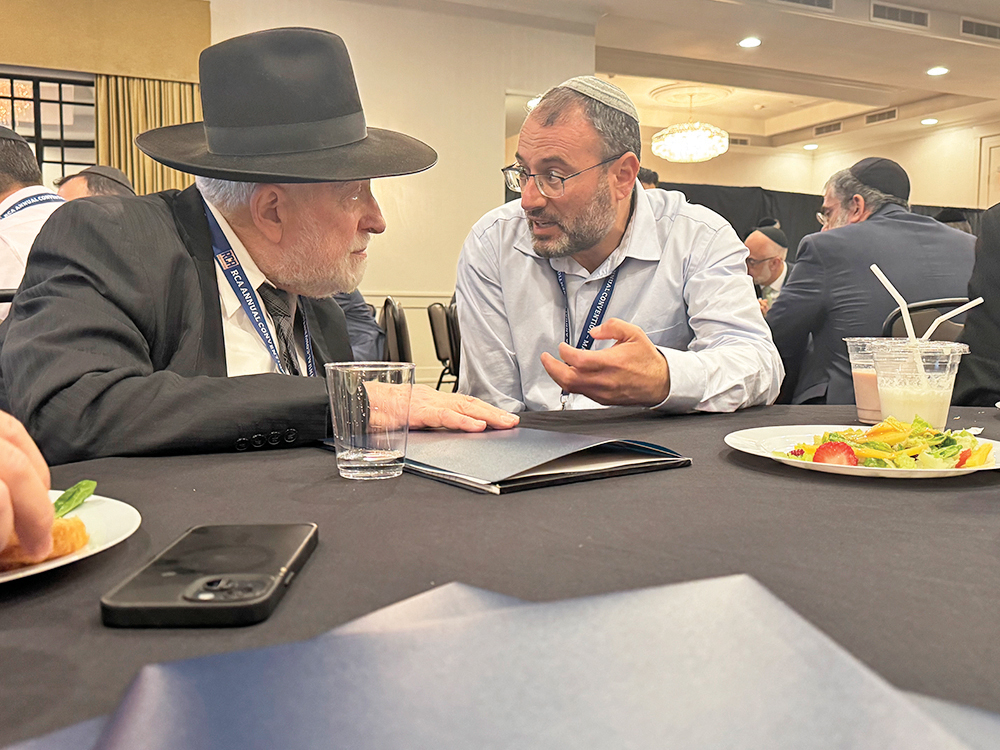
Lasting Connections Formed
Rabbi Weissberg reflected on his East Brunswick experience: “We experienced a truly unique Shabbat. We had the privilege of being exposed to the special community of East Brunswick. My wife and I got to know the rabbi’s family, the Hess family. We met a community very different from our own, yet found much in common. The community received us with great warmth and friendship. We returned to Israel with very special feelings. An unforgettable experience, and especially one that was constructive for us and for our communities. We look forward to maintaining contact with the community in America.”
The American rabbis will make return visits to Israel in November following the High Holidays.
For more information about the program, contact Rabbi David Fine, director of Barkai, at rabbifine@israelrabbis.org.
